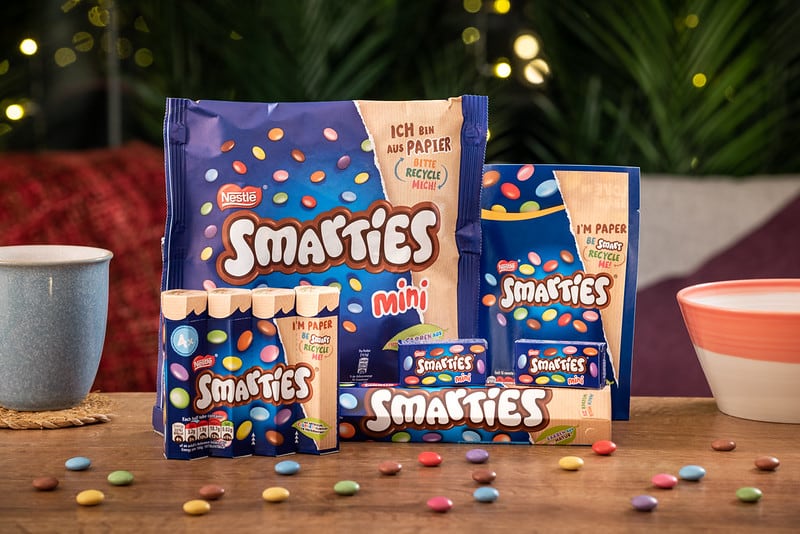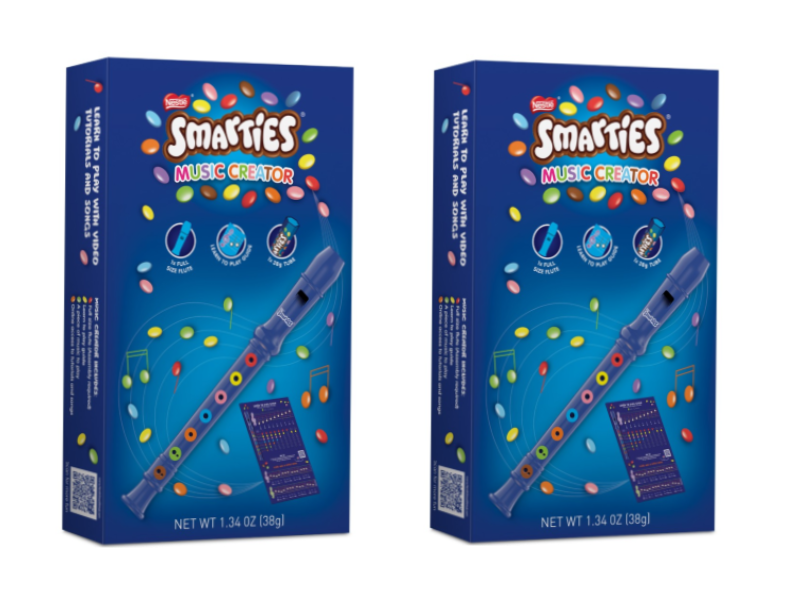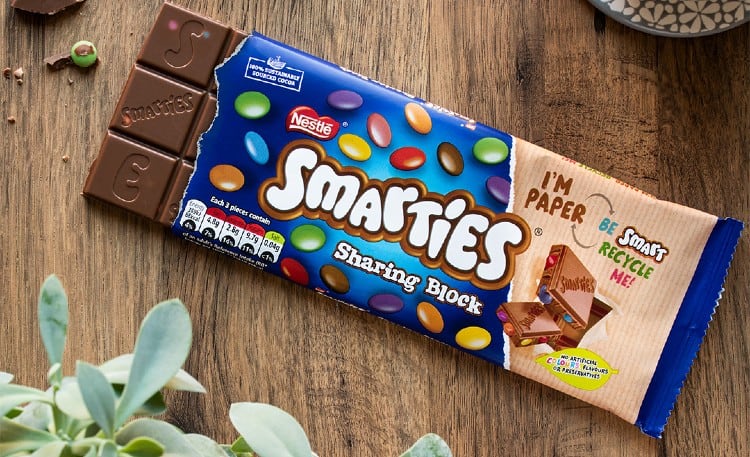The paperisation milestone was announced during a virtual press conference hosted by Nestlé Global Head of Confectionery, Alexander von Maillot, Bruce Funnell, Nestle NPTC Confectionery Head of Packaging, and Rob Cameron, Nestlé Global Head of Affairs.
The company said the move represents a transition of 90% of the Smarties range, as 10% was already packed in recyclable paper packaging.
Developed by Nestlé Confectionery Product Technology Centre in York, the rollout of the new material, will be complete in the UK and Ireland by April.
We want to see the world through children’s eyes and create a more colourful world for children -- Alexander von Maillot, Global Head of Confectionery at Nestlé
The innovative new designs include sharing bags, multipacks and giant hexatubes made from coated paper, paper labels or carton board, all produced from sustainably sourced and recyclable material.
Nestlé first introduced its new technology on the Yes! snack bar towards the end of 2019.
Alexander von Maillot, Global Head of Confectionery at Nestlé, said: “Moving Smarties packaging to recyclable paper is one of our key sustainable packaging initiatives in the confectionery category. It is a further step in realising Nestlé’s ambition to make all of our packaging recyclable or reusable by 2025 and to reduce our use of virgin plastics by one third in the same period.”
The launch of the Smarties sharing block in a recyclable paper wrapper last year was an important step forward in the overall packaging transition. The Smarties brand was launched by Rowntrees in York in 1937 and achieved sales in the UK and Ireland of £72 million in the past year.
“Sustainability is top of mind for Nestlé, and it makes perfect sense for the Smarties brand. We want to see the world through children’s eyes and create a more colourful world for children. We want to give them clear skies and blue oceans and by transitioning to recyclable paper packaging, we are helping give them that future, ” said von Maillot.
Nestlé confirmed that the Smarties blocks are being relaunched with the new material featuring a brand new, playful mould and three flavours - milk chocolate, white chocolate featuring mini Smarties; and in orange flavoured chocolate featuring orange mini Smarties.
Louise Barrett, Head of the Nestlé Confectionery Product Technology Centre in York, said: “Developing safe and convenient paper-based solutions for Smarties has required the pioneering of new materials and testing by Nestlé packaging experts at our R&D centre for confectionery in York and at the Swiss-based Institute of Packaging Sciences. We adapted our existing manufacturing lines to allow for the careful handling that is required for paper, while also ensuring recyclability across all new formats.”
Cameron said Nestlé’s sustainability strategy is defined by five key pillars: Reduce, Reuse & Refill, Alternative Materials, Infrastructure and Behaviour Change. “If we want to change behaviours on sustainability, that change has to start at home. We have to change our mindset about how we go about our work and that also transitions to our brands and our workplace.
“More broadly, we need to change how we work with our customers. This also requires a shift in the part of our retail customers. We need to understand their pressing needs, so our sustainable solutions can work within their retail environments.”
The 90g blocks will be available in shops from February. The milk and orange varieties will be sold at major retailers and convenience stores, the white chocolate block will be available exclusively in ASDA stores.
Milestones
Other sustainable milestones Nestlé has announced to introduce alternative and recyclable packaging materials include:
- Investing up to CHF 2bn (£1.6bn) to lead the shift from virgin plastics to food-grade recycled plastics and to accelerate the development of sustainable packaging solutions.
- Signing up to the European Plastics Pact. The Pact will help Nestlé achieve 100% recyclable or reusable packaging and reduce the use of virgin plastics by one third by 2025.
- Creating an Institute of Packaging Sciences to evaluate and develop various sustainable packaging materials and to collaborate with industrial partners to develop new packaging materials and solutions.



